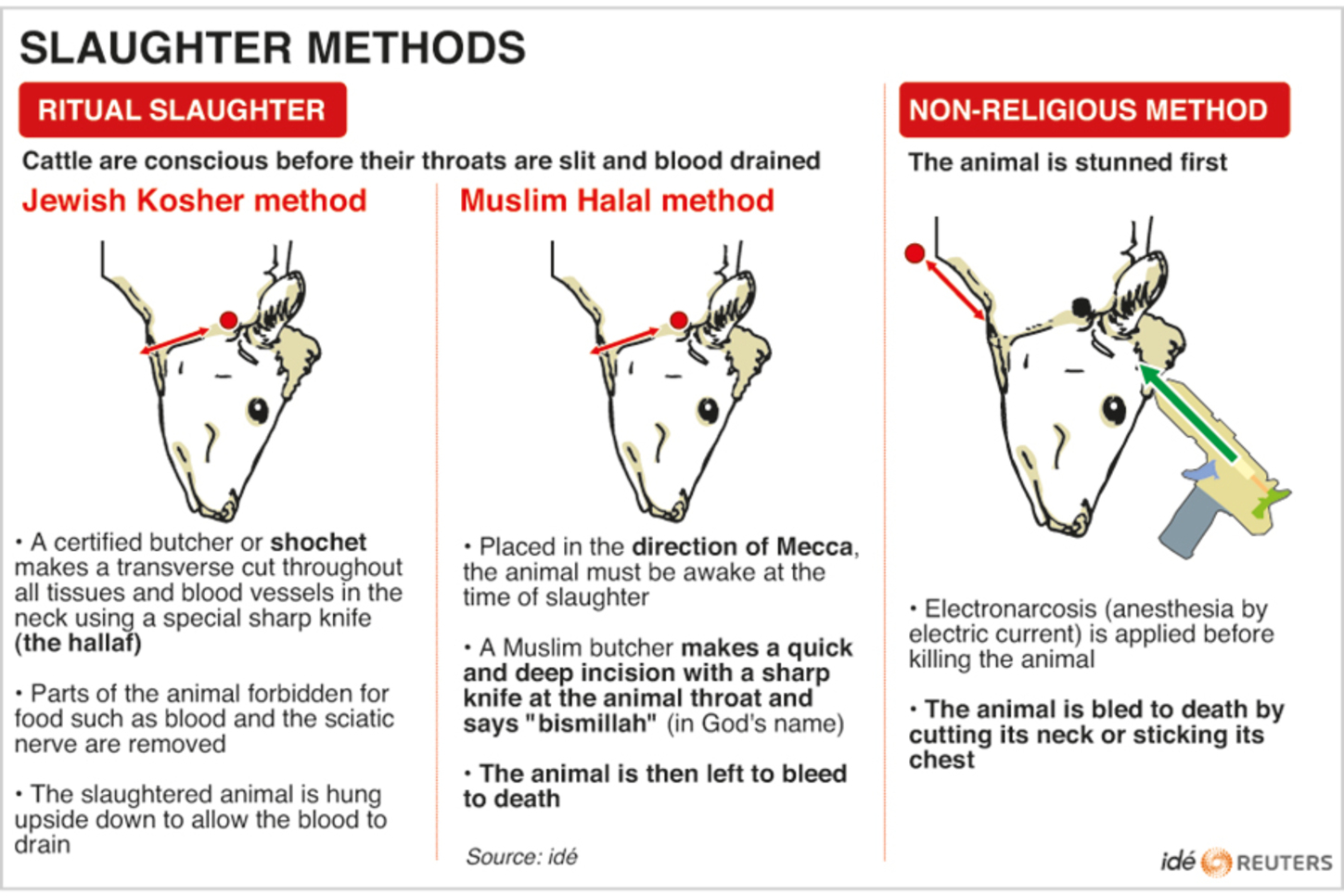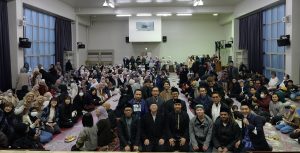Can an agenda driven small vocal minority with social media savvy derail a trillion dollar industry?
If you do not address a provocative rumour, does it become a reality?
Can an agenda driven small vocal minority with social media savvy derail a trillion dollar industry?
The agenda is the halal food industry for the nearly two billion Muslims and non-Muslims with aligned values.
Also Read: Packaging Industry Supports Halal Ecosystem
The vocal minority is the ‘halal-hysteria’ movement, like Boycott Halal in Australia via Facebook, and its viral impact has reached beyond the country’s shores.
What is the ‘measured and proportional’ response from the halal industry as its impacting local SMEs (with halal products) and Australia’s reputation in its export markets like the Gulf countries?
Two points to discuss:
What is the manner of the ‘halal’ slaughter?
What are the cross section of comments by the ‘halal-hysteria’ movement?
Sacrifice
Also Read: 7th World Halal Summit Held in Istanbul
The word ‘slaughter’ may no longer be politically correct to use when describing the event. The event is actually a sacrifice to the Creator for the bounty bestowed upon us (mankind, not just Muslims) so that we part-take of the good and healthy blessings.
“Dhabiah is the prescribed method of slaughter for all meat sources, excluding fish and other sea-life, per Islamic law. This method of slaughtering animals consists of using a well-sharpened knife to make a swift, deep incision that cuts the front of the throat, the carotid artery, windpipe, and jugular veins. The head of an animal that is slaughtered using halal methods is aligned with the qiblah. In addition to the direction, permitted animals should be slaughtered upon utterance of the Islamic prayer “in the name of God.”
The halal (permissible) is a process and procedure, and it starts not at the sacrifice at the abattoir, but at the birth of the animal! Where was the animal was born (cage)? What was it fed (grind up pieces of other animals and antibiotics)? How was it raised (same cage)? How was it transported to the abattoir (smaller cage)? Did the animal view other animals sacrificed?
The focus has to be the life-cycle of the animal and not just the last six seconds of their life. Thus, more light has to be shown on factory farming so that all consumers can make an informed decision.
Also Read: Halal Tourism Pays Attention to Tourist Comfort
The comments
The comments, from informative to provocative, after an article usually convey a pulse of the sentiment, right or wrong, for those interested in the topic. The sentiments based on evidence change opinions versus sentiments that are meant to inflame.
Here are two comments from a recent article January 22, ‘Some people really don’t understand what halal means.’
“The halal rort is growing fast and is now a multi-trillion dollar industry world-wide. Halal certified food involves a fee paid to an Islamic certifying body and this means any halal certified food we buy incurs an Islamic tax under Shariah law.
Also Read: Sheikh Watteau Supports Philippine Halal Certification Through ISO
Part of this then apparently funnelled through to the Islamic Brotherhood and others. The little halal symbols are on a huge variety of everyday food and are becoming an increasing part of our Western diet. We are not just talking about meat here.
It has been described as ‘Stealth Jihad in the West’. Even Cadbury’s chocolate is catering to them including promoting shariah-compliant, halal-certified chocolate bunnies and eggs for Easter! So Muslims celebrate Easter now?”
Few points here:
— There is a Muslim/Shariah tax for non-Muslims who purchase halal? Why is the writer not raising the issue for organic and Kosher, also available in their countries? Furthermore, such people have the freedom not to purchase. One can vote by their ‘dollars.’
Also Read: Indonesia-Brunei Discuss Increasing Halal Meat Exports
— Part of the halal certification fees is sent to fund ‘Islamic Brotherhood.’ Where is the evidence, as forensic accounting of books and wire transfer closely monitor the situation? The said organisation is banned in the Muslim countries.
— The halal food becoming part of the western diet. Why is that bad? If this person ate a halal sacrificed meat versus non-halal, would he/she be able to tell the difference? The halal industry needs to present hard scientific evidence of the benefits of complete draining of the blood, which may be produced by non-stun slaughter.
If Nestle, with 500 halal products in Malaysia, and Cadbury are offering halal products, it’s because there is a consumer demand and not because they want to back-door a religion. The money Nestle and Cadbury receives from selling their products eventually goes to paying their employees, their shareholders and support stock prices.
If Muslims want to have purchase halal chocolates during Easter or halal turkey during Thanksgiving, isn’t it about tolerance, understanding and respecting other’s faiths?
Also Read: Mathlaul Anwar University Promotes Banten Loves Halal Campaign
The writer below is probably the sampling, and industry needs to answer his questions.
‘Let’s not overreact. It has nothing to do with “financing Islam” or “supporting” or “not supporting” Muslims. As long as no one is misbehaving, forcing others to do something or threatening my way of life, I don’t care what religion they are, as long as they are peaceful — but truly peaceful, not in the MSM kind of way.
Halal hysteria is a bit over the top, in my opinion. Yes, the animals are suffering (I think) and it looks cruel — so that alone may push people to avoid halal meat (if they can avoid it, someone rightly pointed that most meat in NZ is halal certified anyway — but I think it is done in a slightly more caring way using stun gun first). But a lot of other animals are killed cruelly, like ducks to get the foie gras, which I adore. So, what do we do there?’
What is the halal industry campaign to educate?(T/P009/P3)
Also Read: Two Halal Industrial Estates Built in NTB
Mi’raj Islamic News Agency (MINA)
*Rushdi Siddiqui is a co-founder and chief executive of Zilzar. Views expressed by him are his own and do not reflect the newspaper’s policy
Source: http://www.khaleejtimes.com/
Also Read: Two Indonesian Halal Industrial Areas Under Development





























 Mina Indonesia
Mina Indonesia Mina Arabic
Mina Arabic